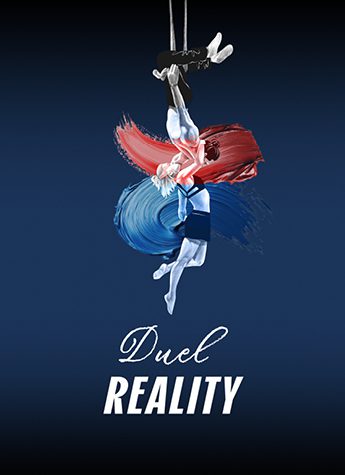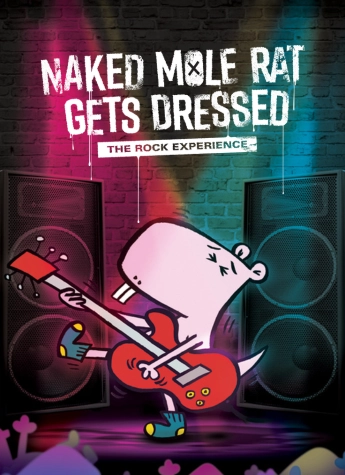- Shows &
Tickets-
-
Naked Mole Rat Gets Dressed: The Rock Experience
FEB 21 – JUN 30
Goizueta Stage for Youth & Families
-
-
- Classes &
Camps-
-
-
-
Interested in after-school activities for your kids? Explore After School Programs
- After School Programs
-
-
-
- Schools &
Educators-
-
- Schools & Educators
Partner with the Alliance Theatre Institute for professional learning for educators and arts-integrated or theater-based instruction for students.
-
Unique Programs
We offer unique programs that use the power of the arts to inspire students, develop skills, and create positive change in schools and communities.
- Poetry Out Loud: Georgia
- JumpStart Theatre
-
-
-
-
Tickets for Teachers is a free ticket program for educators at Alliance Theatre productions. View Program Details
- Tickets for Teachers
-
-
-
- Artists &
Community-
-
- Artists & Community
Learn more about our playwriting programs, partnerships with community organizations, and resources for artists.
-
An exploration of theater and the people who make it happen.
-
Check here for all major announcements from the theater.
-
-
- Impact &
Support-
-
- Impact & Support
Your support brings stories to life, funds community programs, and ensures more people have access to powerful theater experiences.
-
Name a Seat in the Goizueta Stage
Put your unique handprint on better tomorrows for Atlanta's young audiences.
-
-


Unsuccessful actors come into the rehearsal room knowing all the answers.
Powerful actors are open to learning and allow themselves to be surprised.
At the beginning of every rehearsal process, the cast is given a major challenge – find the most engaging and compelling way tell the story. Curiosity is the engine that propels this work forward. At times, this creative process can be complex and frustrating. An actor who thinks he or she has all the answers can quickly shut down the flow of creativity. A successful rehearsal requires the actors to explore, question, try, fail, and try again and again. To actively engage rehearsal after rehearsal, the ensemble must remain open to learning something new, be willing to be surprised, and embrace uncertainty – in other words, stay curious.
Why is staying curious important?
We have all been in those meeting where the conversation stalls – where people are dug into their own points of view or cannot move past “the way that we’ve always done it.” Staying curious can disrupt our assumptions and allow us to see what is really going on and what could be. When we stay open to learning and allow ourselves to be surprised, our experiences are not limited by our lack of imagination. Curiosity is the gateway to creative problem solving and innovation. Being okay with not knowing all the answers invites solutions to emerge in unexpected ways and from unexpected places.
Staying Curious with Real Questions
Asking the right questions help actors decide, at any given moment, the best choice to make. The art of good questioning comes from genuinely wanting to hear the information and meaning in the answer. However, often we do not ask real questions. Instead, we ask leading questions. We ask limiting questions. We ask questions that assume a certain answer. To stay curious, we need to ask real questions that are in search of real answers.
Real questions…
- Support cooperation
- Encourage others to share information about their ideas, concerns, and feelings
- Show respect and interest in others
- Demonstrate a willingness to connect and spend time with others
How do I ask a real question?
Ask more open-ended questions. These Why, How, and What questions invite the other person to share in a more thoughtful way. Just consider the power of a What If question. What If questions spark our imaginations and anchor the discussion in possibility. Creative conversations flow easily with open-ended questions, giving space for the other person to show up more authentically.
Ask more neutral questions. When we ask leading questions that express an existing opinion, the other person is not likely to contradict us. A neutral question that is looking for accurate information or an honest opinion is much more helpful. And beware of turning yes/no questions into statements of opinion. For example, “Don’t you think it would be good to work together on this project?” Try this instead, “What do you think are the potential benefits to us to working together? And what are the possible challenges?”
Ask for stories, not just answers. Stories express more than just the facts. Stories provide context, paint a vivid picture of what is going on, and help us see things from other perspectives. Asking for stories builds rapport and creates connection and empathy.
Then listen. Don’t interrupt. Listen (with and for understanding) to the full answer to your question.
- Don’t Calculate a response – Allow yourself to be vulnerable and trust yourself to listen to the end of the other person’s statement. Then respond instead of reacting to what has been said.
- See them as a Coach – Allow the other person to be your teacher. Stay humble and don’t assume you have nothing to learn.
The performance you want takes practice.
Ask yourself these guiding questions to build your awareness of when you’re curious (and when you’re not).
- What if I replace being critical about something new with being curious about it? How would that change the outcomes of my conversations?
- What do I need to let go of to be more open to learn in stressful situations?
- Do I ask yes or no questions that are really statements of opinion?
- What if I listen fully to the whole response to my questions? What would happen?
Learn More
Ready to learn more about how Alliance@work can help your company?












